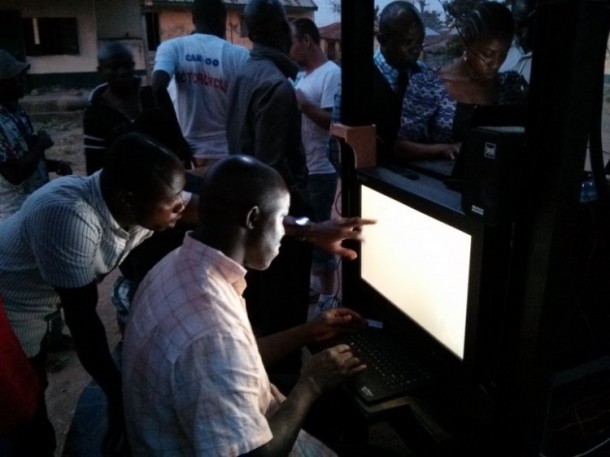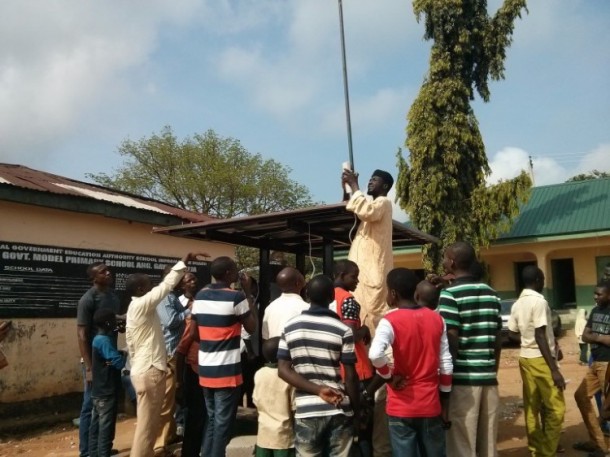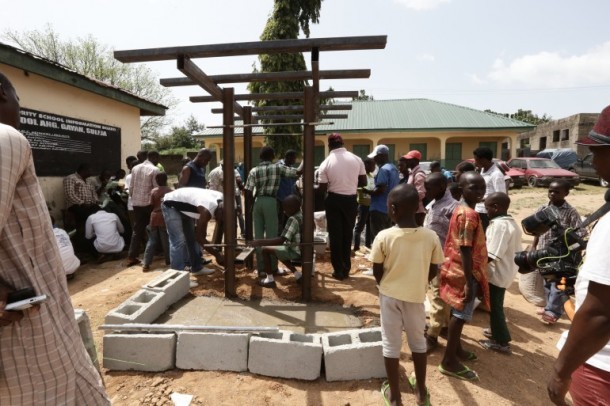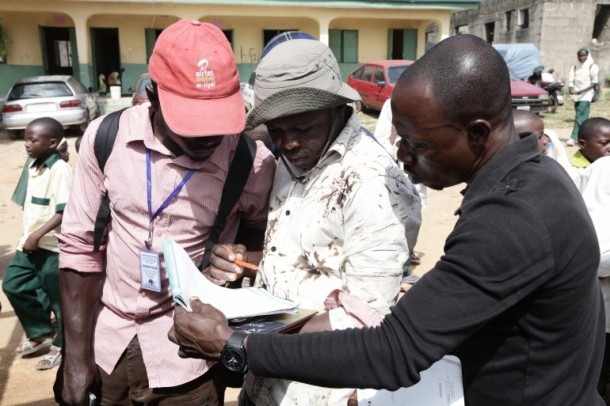How long do you think you can survive without Internet? We know it is hard to answer. Internet has, indubitably, become one of the most essential necessities of life and when you look at it objectively, you will realize that we take it for granted nowadays. There are parts of Africa where there is no Internet or even education to speak of. The reason being simply that building a school is not practical enough. Now, the issue of not having schools is being tackled via Hello Hub.
Hello Hub is a kiosk that makes use of solar power and has two computers with touchscreens. The Hub comes with Internet access and a number of educational software. The first patch of this hub was installed in Nigeria and more units shall be installed in 2015 by “Projects for All”, the charity organization behind Hello Hub.
The hub has benches that can offer seating for a total of 8 persons. There are waterproof enclosures in which computers are placed. They have been designed so that repair can be carried out easily. The computer has a remote access software that allows the engineers to tackle problems without having to physically go to the site. These computers run on Edubuntu (special Linux version).
The system is packed with educational software and an office suite along with media editing tools and a web browser. Users can interact with the computer through the touchscreen and keyboard. A microphone and webcam is installed as well. Community members have their own passwords, therefore allowing them to log into their session with their files and activities.
Hello Hub can work off the grid due to solar power and battery array that comes with it. It connects to the Internet via a satellite or cell-network. People can access Internet on their devices too since the hub can work as a Wi-Fi hotspot. The Hello Hub wasn’t just built by engineers who came to Nigeria, rather the community participated in the process of constructing the kiosk. The charity organization opted for partnering up with the local people instead of just bringing the system to them. The community worked in collaboration with the charity to construct the kiosk and then set the system up.
According to the charity, “This ensures sustainability and community empowerment. We open source all of our technology and methods and publish ‘how-to’ guides so that anyone, anywhere can build one too.” The second batch of the hubs will be installed in Eastern Nigeria from March 2015 onwards.


